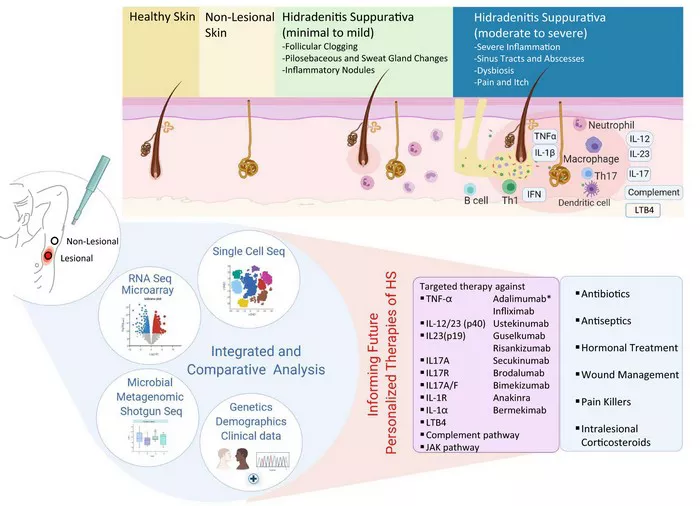Eczema, also known as atopic dermatitis, is a skin condition that can cause redness, itching, and inflammation. Diet plays an important role in managing eczema symptoms. This article explores what to eat when you have eczema, focusing on foods that can help reduce flare-ups and improve skin health.
Understanding Eczema Triggers
Before diving into food recommendations, it’s essential to understand that eczema triggers can vary from person to person. Common triggers include:
Food Allergens: Some people are allergic to foods like dairy, eggs, nuts, soy, and wheat.
Environmental Factors: Pollen, dust mites, and pet dander can worsen symptoms.
Stress: Emotional stress can lead to flare-ups.
Weather: Dry or humid conditions can affect skin health.
Identifying personal triggers through elimination diets or consultations with a healthcare provider can help tailor dietary choices.
SEE ALSO: What is in Aveeno Eczema Cream?
Foods to Include in Your Diet
Certain foods may help soothe eczema symptoms and support overall skin health. Here are some beneficial options:
1. Fatty Fish
Fatty fish, like salmon, mackerel, and sardines, are rich in omega-3 fatty acids. Omega-3s have anti-inflammatory properties that can help reduce skin inflammation and improve hydration. Aim to include fatty fish in your diet at least twice a week.
2. Nuts and Seeds
Nuts and seeds, especially walnuts and flaxseeds, are also high in omega-3 fatty acids. They are a great source of healthy fats and can help nourish the skin. Incorporate a handful of nuts or a sprinkle of seeds into your meals or snacks.
3. Fruits and Vegetables
Fruits and vegetables are packed with vitamins, minerals, and antioxidants that promote skin health. Some particularly beneficial options include:
Berries: Rich in antioxidants, berries help reduce inflammation.
Leafy Greens: Spinach, kale, and Swiss chard provide vitamins A, C, and K, which are crucial for skin repair.
Carrots: High in beta-carotene, which the body converts to vitamin A.
Aim for a colorful variety of fruits and vegetables daily to maximize nutrient intake.
4. Whole Grains
Whole grains, such as brown rice, quinoa, and oatmeal, are good sources of fiber and essential nutrients. They help regulate digestion and can be beneficial for skin health. Replace refined grains with whole grains for added benefits.
5. Probiotic-Rich Foods
Probiotics are beneficial bacteria that support gut health, which can influence skin conditions like eczema. Incorporate probiotic-rich foods such as:
Yogurt: Choose plain, unsweetened varieties for the best benefits.
Kefir: This fermented dairy product is packed with probiotics.
Sauerkraut and Kimchi: These fermented vegetables are also excellent sources.
Aim to include probiotics in your diet regularly to support gut and skin health.
6. Healthy Fats
Healthy fats are crucial for maintaining skin barrier function. Include sources of healthy fats such as:
Avocados: Rich in vitamins E and C, they help nourish the skin.
Olive Oil: This oil contains antioxidants and healthy monounsaturated fats that can reduce inflammation.
Use these fats in cooking or as dressings for salads.
Foods to Avoid
While certain foods can help manage eczema, some may trigger or worsen symptoms. It’s essential to be mindful of these potential culprits:
1. Dairy Products
Dairy can be a common allergen for many individuals with eczema. If you suspect dairy is a trigger, consider eliminating milk, cheese, and yogurt from your diet and observe any changes in your symptoms.
2. Eggs
Eggs are another frequent allergen linked to eczema flare-ups. If you notice worsening symptoms after consuming eggs, try removing them from your diet.
3. Processed Foods
Processed foods often contain additives, preservatives, and unhealthy fats that can promote inflammation. Aim to minimize the consumption of packaged snacks, fast food, and sugary treats.
4. Refined Sugars
High sugar intake can lead to inflammation and exacerbate eczema symptoms. Limit sugary snacks, desserts, and sweetened beverages to help manage your skin condition.
5. Nightshade Vegetables
Some people find that nightshade vegetables, such as tomatoes, peppers, and eggplants, can trigger eczema symptoms. If you suspect these foods affect your skin, consider reducing or eliminating them.
The Importance of Hydration
Staying hydrated is crucial for skin health. Drink plenty of water throughout the day to keep your skin hydrated from the inside out. Herbal teas and infused water can also be excellent alternatives.
Sample Meal Plan for Eczema Management
Here’s a simple meal plan that incorporates foods beneficial for eczema:
Breakfast: Overnight oats made with rolled oats, chia seeds, almond milk, and topped with fresh berries.
Snack: A handful of walnuts or a small serving of yogurt with honey.
Lunch: Quinoa salad with mixed greens, cherry tomatoes, cucumbers, avocado, and olive oil dressing.
Snack: Carrot sticks with hummus or a piece of fruit.
Dinner: Baked salmon with steamed broccoli and brown rice.
Dessert: Sliced apples with almond butter.
Supplements to Consider
In addition to a balanced diet, certain supplements may support skin health:
Omega-3 Supplements: If you don’t consume enough fatty fish, consider an omega-3 supplement.
Probiotics: A daily probiotic can help maintain gut health and improve skin conditions.
Always consult with a healthcare provider before starting any new supplements.
Lifestyle Changes for Better Skin Health
Diet is just one aspect of managing eczema. Incorporating lifestyle changes can further improve skin health:
Moisturize Regularly: Use a fragrance-free moisturizer to keep the skin hydrated.
Reduce Stress: Engage in stress-reducing activities like yoga, meditation, or deep breathing exercises.
Avoid Hot Showers: Hot water can dry out the skin. Opt for lukewarm showers instead.
Wear Soft Fabrics: Choose breathable fabrics like cotton to avoid skin irritation.
Conclusion
Managing eczema through diet involves understanding your triggers and incorporating skin-friendly foods into your meals. Fatty fish, nuts, fruits, vegetables, whole grains, and probiotics are beneficial choices. At the same time, avoiding common allergens and processed foods can help reduce flare-ups. By combining dietary changes with a healthy lifestyle, you can support your skin health and improve your quality of life. Always consult with a healthcare professional to create a personalized plan tailored to your needs.



























